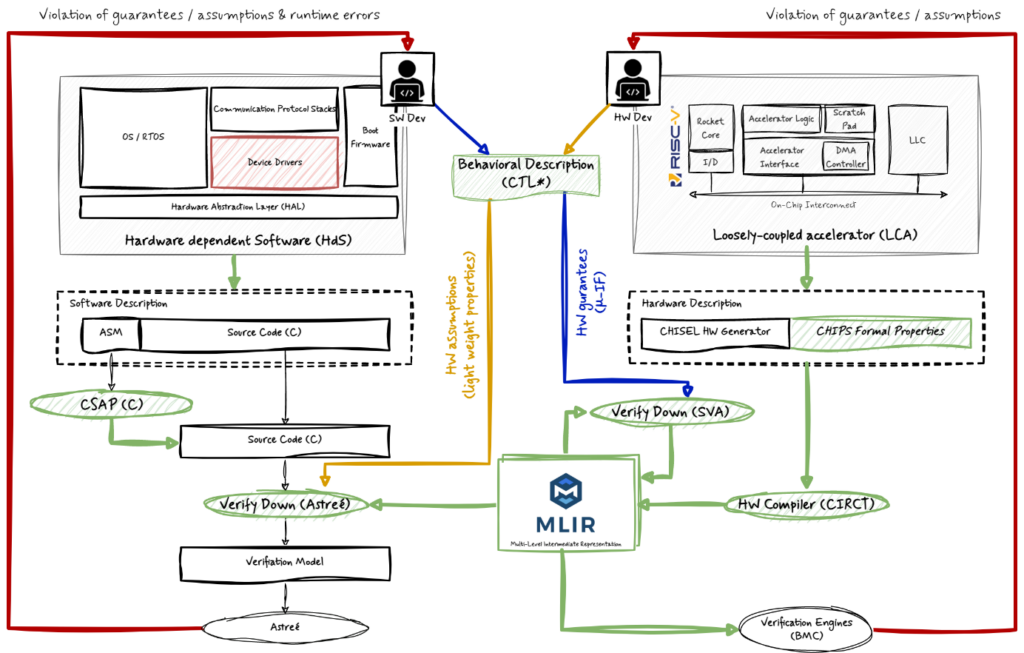SAFE AI ENGINEERING
AI engineering ensures safety of AI components for autonomous, connected driving
Start: 05/2020
End: 12/2025
https://www.edacentrum.de/scale4edge/en
Scale4Edge reduces the currently extensive development times and high development costs for application-specific edge components. The approach is based on providing an ecosystem for a scalable and flexibly expandable edge computing platform based on the free RISC-V instruction set architecture.
Verification of the entire hardware/software system is significant for application-specific, flexible edge computing platforms. Software development, for example, often falls back on assumptions about the hardware that are difficult to verify, as the hardware is only available as a closed system (black box). Nevertheless, statements about the hardware behavior must be considered during software verification. Scale4Edge investigates an approach considering the mutual interaction in HW/SW co-verification.
The approach’s core is the behavioral description, a description format that formally specifies assumptions about the hardware/software interaction. With the ‘verify-down’ tool, these assumptions can be automatically included in both the static software analysis and the formal hardware verification using Bounded Model Checking.
Via the domain-specific language CHIPS, the generator-based design process of RISC-V platforms is enhanced by a lightweight option for specifying hardware properties in a hardware generator. Utilizing the provided transformations, CHIPS properties can be automatically transferred to, e.g., SystemVerilog assertions.
Combining these approaches allows for comprehensive verification of the hardware/software system.

Um die sichere Digitalisierung zu ermöglichen, erforscht und vermittelt das FZI in diesem Forschungsschwerpunkt anwendungsnah innovative Konzepte, Methoden zur Absicherung von IT-Systemen sowie rechtliche Rahmenbedingungen.

Funding notice:
The joint project Scale4Edge is funded by the Federal Ministry of Research, Technology and Space.
Project partners:
AI engineering ensures safety of AI components for autonomous, connected driving
Data trustee model protects use of individual health data in research
AI-based software detects and corrects motion artifacts in OCT images.
Thanks to the measurement of social interaction, psychological stress caused by loneliness can be detected at an earlier stage
Digital platform for dementia prevention helps address the lack of exercise
More exercise in everyday life: Self-learning real-time system recognizes behavior patterns and recommends customized activities
AI assistant serves as first point of contact for legal questions
AI engineering empowering security reasoning throughout the entire lifecycle of an AI function
Secure and self-determined digital identities in e-commerce
Co-design for application-specific microelectronics with innovative chiplets in Baden-Württemberg